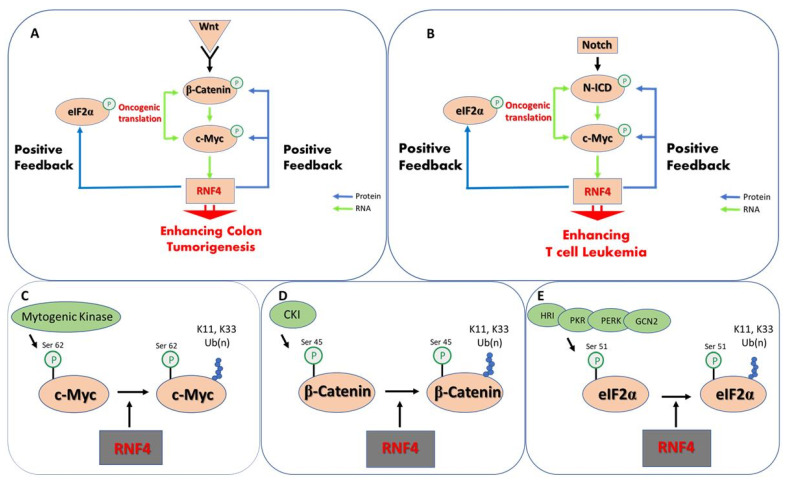Figure 2.
Protein stabilization is a feed-forward mechanism enhancing tumorigenesis. (A) In colon cancer activation of Wnt signaling results in the nuclear translocation of the β-catenin co-activator that together with TCF activates the transcription of c-Myc. c-Myc binds to the rnf4 gene and induces its expression. RNF4 protein in turn stabilizes both p(S45)-β-catenin and p(S62)-c-Myc and enhances their stability and transcriptional activity. In parallel, RNF4 stabilizes p(S51)eIF2α that is central for the activation of oncogenic translation including c-Myc and VEGF. (B) A similar mechanism operates in acute T-cell leukemia, where Notch pathway activation induces the nuclear accumulation of Notch intracellular domain protein (N-ICD) that binds to a c-Myc enhancer inducing c-Myc expression, that subsequently increases RNF4 expression. (C–E) Molecular details of kinases and site of phosphorylation of the indicated oncoproteins that prime for RNF4-dependent K11, K33 polyubiquitination and protein stabilization.

